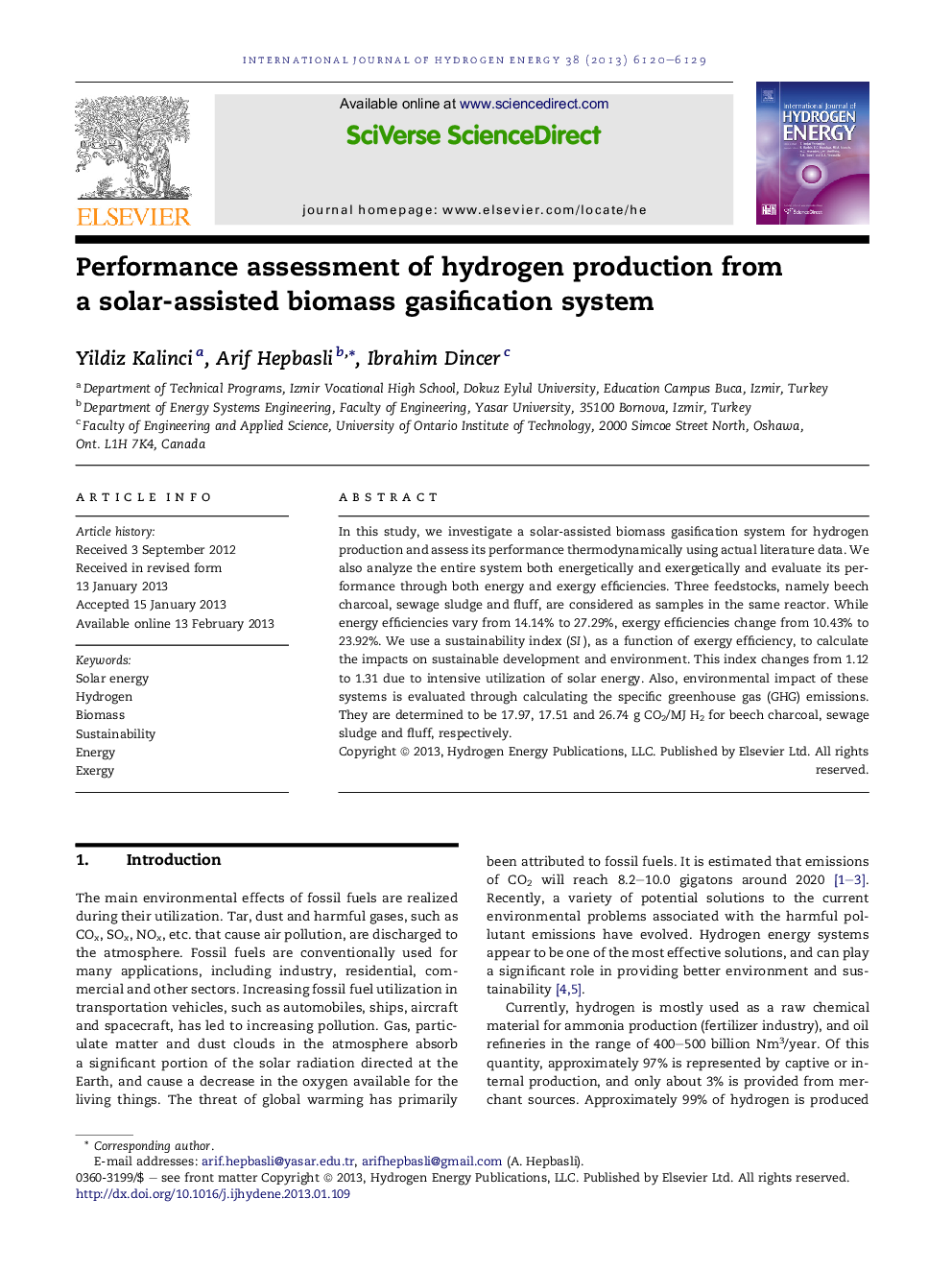| Article ID | Journal | Published Year | Pages | File Type |
|---|---|---|---|---|
| 1281730 | International Journal of Hydrogen Energy | 2013 | 10 Pages |
In this study, we investigate a solar-assisted biomass gasification system for hydrogen production and assess its performance thermodynamically using actual literature data. We also analyze the entire system both energetically and exergetically and evaluate its performance through both energy and exergy efficiencies. Three feedstocks, namely beech charcoal, sewage sludge and fluff, are considered as samples in the same reactor. While energy efficiencies vary from 14.14% to 27.29%, exergy efficiencies change from 10.43% to 23.92%. We use a sustainability index (SI), as a function of exergy efficiency, to calculate the impacts on sustainable development and environment. This index changes from 1.12 to 1.31 due to intensive utilization of solar energy. Also, environmental impact of these systems is evaluated through calculating the specific greenhouse gas (GHG) emissions. They are determined to be 17.97, 17.51 and 26.74 g CO2/MJ H2 for beech charcoal, sewage sludge and fluff, respectively.
► Analyzing a solar-assisted biomass gasification system for hydrogen production. ► Varying exergy efficiencies for the system from 10.43% to 23.92%. ► Changing sustainability index for the system between 1.12 and 1.31. ► Investigating the operating parameters affecting the system behavior.
